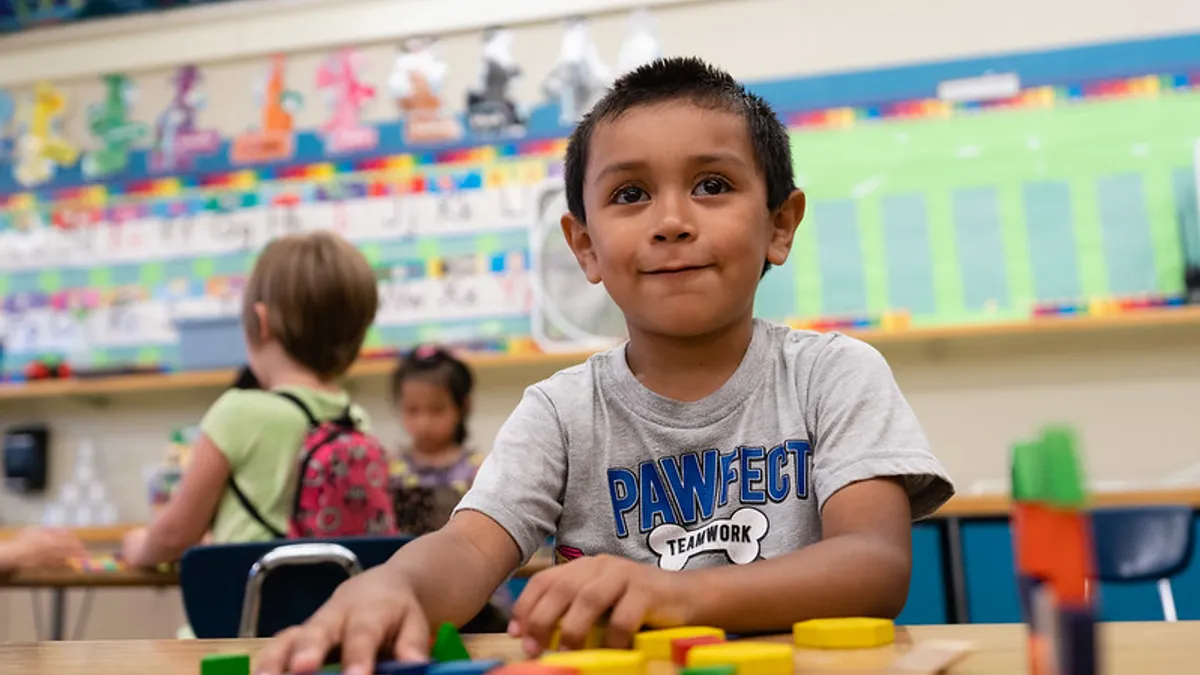Dive Brief:
- Kindergartners losing months of school or skipping the grade entirely due to the novel coronavirus pandemic will face long-term impacts as a result of the disruption to a critical foundational learning year in which rapid brain development and academic base-building occurs, EdSource reports.
- About 17% of families surveyed by the University of Oregon reported choosing to delay their kindergarten-age students from starting school last fall. Los Angeles Unified School District — the largest school district in California and second-largest nationwide — reported about 6,000 fewer kindergartners this year than last.
- The “COVID slide” may be especially drastic for those in this year's kindergarten cohort, early childhood advocates say. Students who don’t hit certain milestones in reading and math may struggle later, and those skipping kindergarten entirely are likely to be particularly disadvantaged when they enter 1st grade in the fall.
Dive Insight:
While higher-income families may have been able to place their students in private schools or hire tutors, many lower-income families were left to manage their kindergarteners in front of a computer screen or not enroll them. The discrepancy further exacerbates the chasm in education equity and creates further curricular challenges for educators, experts say.
The equity gap impacted kindergarten students even before the pandemic struck. For some low-income families, preparing a student for the first year of school was financially out of reach. Head Start, a federally funded early-childhood program for low-income families, served only 36% of the 3- to 5-year-old pre-kindergarten students who qualified. Most brain development occurs before age 5, which is what makes early learning so important.
Kindergarten enrollment has crashed around the country. Data collected by NPR shows enrollment was down by 16% in a 60-district sample. In 2018, 84% of the nation’s 5-year-olds were enrolled in either preschool or kindergarten. However, just 19 states and the District of Columbia require students to attend kindergarten, so parents could easily opt-out rather than enrolling their young students in distance-learning kindergarten.
The impacts of early childhood learning come into focus in 3rd grade, a year when it is critical for students to reach certain milestones predictive of later academic success. A study by the Annie E. Casey Foundation found students who were not reading by the end of 3rd grade were four times more likely to drop out of school before graduation, and 88% of students who failed to earn a high school diploma struggled to read in 3rd grade.











